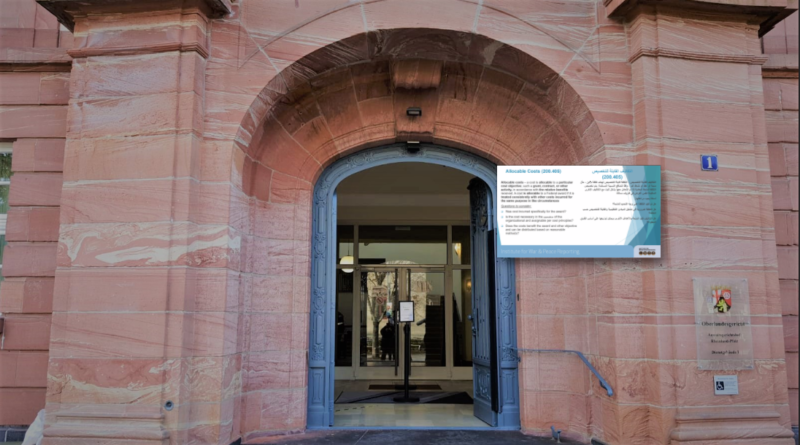Koblenz Trial 19.08.2021: Witness did not wish to reveal his identity or disclose personal information fearing for his family in Syria
Written By Luna Watfa
Translated to English by Diane Lockyer
On 19/08/21, a Syrian witness arrived and told the court that he needed a lawyer with him, so the session began about half an hour later than usual.
The panel of judges approved the decision to appoint a lawyer in this case. The lawyer who was appointed explained that the witness did not wish to reveal his identity or reveal any personal information because he had family in Syria and he feared for them.
The witness began describing to the judges how one day in August 2012, the security forces came to his area at five in the morning and made mass arrests of nearly 100 people from the same area, including the witness.
The detainees were taken by bus to the al-Khatib branch during which they were subjected to beatings and were then taken to the cells after being physically searched.
The witness said that the cell covered about nine square meters with 27 people in it whose ages ranged between 16 and 45 years old. He described the conditions inside the cell in terms of food, air and sleep and insisted that their psychological state was so bad that some of them did not eat anything during the first days of detention due to their fear and lack of knowledge of the fate awaiting them and because of torture.
Concerning the ill-treatment, the witness added that one day one of the detainees in his cell was having great difficulty breathing. The detainees knocked on the door of the cell to inform the jailer of his condition, so the jailer entered and hit the detainee on the chest and said to him: “Do you feel better? Can you breathe? »
The witness’s detention lasted only three days during which he was subjected neither to torture nor interrogation. The reason for this was that he and those detained with him belonged to an area where there were notables who had ties to the regime. Three days later, two of these notables, one with the rank of major general and the second a member of the People’s Assembly, met the detainees and talked with them about the importance of the homeland and loyalty to it and the Assad regime. They urged the detainees to sign certain papers and then took them to buses that took them back to their area.
Prior to their release, the detainees saw no officer or member of the al-Khatib branch, which the witness believed was done intentionally so that they would not be able to recognize any of them eventually and therefore he was also unable to identify the accused in the courtroom.
The witness’s testimony did not last more than an hour and a quarter during which he was careful not to speak in an intelligible or clear voice. Moreover, he insisted on wearing a mask all the time which made it difficult to hear and understand his words in Arabic.
At the end of the session, the defense lawyers submitted a request to the panel of judges to summon a new witness from Turkey. He was a defector from the al-Khatib branch, where he had worked as a jailer, and the defense lawyers indicated that he was an important witness for them because he could talk about the tasks and role of the Branch 40 and could also give information about Hafez Makhlouf and his role as well as other officers.
Defense attorneys must now wait for the court to rule on their request, and until that time requests to call new witnesses or present new evidence are still open to all parties until the end of September, after which no evidence or witness that has not been previously registered can be presented.
After that, it is expected that the final pleadings will begin, whether from the defense or the civil and public claim, in preparation for the hearing on the sentencing of the accused.

